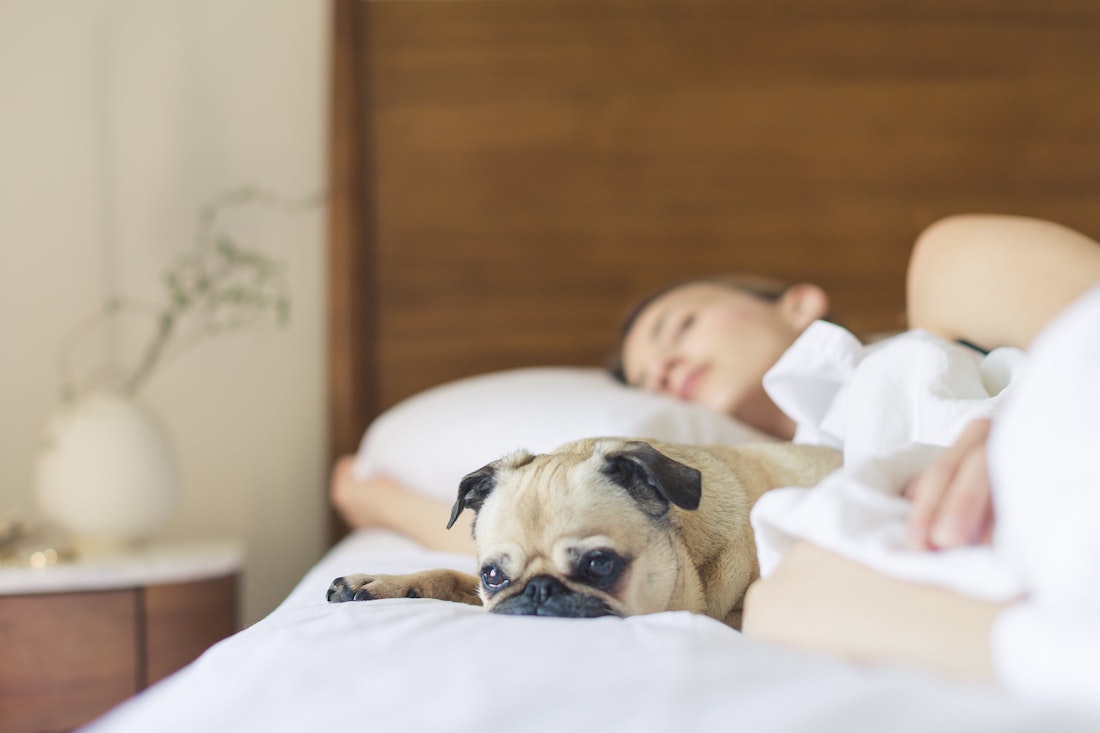11 Tips for Better Sleep and Better Health
/Sleep is so important to your overall health. Here are 11 tips for better sleep that you can start today.
This post contains affiliate links but clicking on them does not change the price for you, but does help offset some operating costs on Tasting Page. Full Disclosure.
If you’ve heard any advice on how to live a healthy life (like my 5 rules for balanced living), you know that you need to get a good night’s sleep to kick butt at life.
You do want to kick butt at life, don’t you? Of course you do!
So why is sleep so important and how can you be sure to get enough of the good stuff?
Why do we need sleep?
Sleep is the time of day that our bodies file everything away.
You know all those browsers you keep open on your computer, and how sometimes the computer freezes or crashes when you open too many? Just like a computer, you have to learn how to shut things down.
If you don’t file away any of the thoughts from the day, you’re going to have a hard time focusing on the task at hand (see above for too many browsers open). Not only that, but you have to give your brain and body some down time. You likely keep both pretty active during the day, and they need time to relax and recover.
Health
A recent study linked the quality and length of your sleep to increased cardiovascular risk. I’m sure you can guess that interrupted sleep and shorter sleeping times were worse for your heart.
There’s also evidence showing poor sleep can increase anxiety, depression, and even lead to dementia.
So yeah, you want to get quality sleep. Studies have shown that sleep has many benefits for the mind and body.
Getting a good night’s sleep can help you think more clearly, build muscles and balance hormones. Not only that, but proper sleep has been shown to reduce the risk of heart disease, type 2 diabetes, and it has been shown to boost the immune system. All that, just from getting your zzzzz’s.
Hunger
Then there’s the connection between overeating and not getting enough sleep.
When you don’t get enough sleep your hunger hormones get thrown out of balance, causing you to eat more. And I don’t mean eat more kale.
Ghrelin and leptin control hunger and fullness respectively. If you’re not getting enough sleep, these two aren’t able to do their jobs. Know what that leads to? That leads to your face in a Ben & Jerry’s pint until it’s empty. High fat, high carb ingredients are what you’ll want, and all of that can lead to unhealthy eating and weight gain.
Hormones
There’s more hormones we need to talk about when it comes to getting better sleep – cortisol and melatonin. The key is to get these two important hormones to rise and fall at the appropriate times.
When things are working well, cortisol rises to its peak in the morning, giving you energy to wake up and start kicking butt. Then later in the day, your cortisol should drop and your melatonin should increase to get you ready for bed.
The problem is with life getting all life-y and stressful, our cortisol doesn’t always drop when it’s supposed to. Ever had a day of dragging where you pulled your lifeless self from one task to the next? And then when bedtime rolled around, you got a second wind and started rearranging your pantry? That’s a cortisol – melatonin imbalance right there.
Luckily there are ways to balance all of this so you can get a good night’s sleep and reap sleep’s benefits.
Tips for Better Sleep
1. Light Up Your Morning
Get natural light on your face and body early in the morning, preferably within the first 60 minutes of waking. Physician and best-selling author Dr. Alan Christianson recommends starting your day with sunshine to get your cortisol going and to naturally balance your circadian rhythm.
The sun will give you a shot of Vitamin D, a good hormone regulator, and a vitamin many are deficient in. This will help boost serotonin, which then helps balance melatonin for sleep at night. All of that just by getting a little early morning sunshine.
2. Get Dark at Night
Just as you want natural light in the morning to kick start things, you want darkness at night to allow for melatonin to take over and make for sleepy time.
Sean Stevenson Author of Sleep Smarter talks about how the skin has receptors that can pick up on any light. So that alarm clock that you’re staring at while you’re not sleeping isn’t helping you in more ways than one.
Get an old school alarm clock that emits no light, or cover up the face of a digital one. There are also natural light producing alarm clocks that simulate the sunrise to naturally ease into the day. And yeah, don’t even think about keeping your iphone in the room with you. You have light, EMFs, and distraction all working against you there.
Blackout curtains do a great job of reducing the incoming street light. I love mine so much. I miss them when I travel!
3. Reduce Blue Light
Guess what blocks melatonin production? That thing in your hand that you might be reading this article on. Electronic devices emit artificial blue light, which produces more hormones and cortisol that can disrupt your sleep. Stevenson says that every hour you are on your device at night suppresses melatonin for 30 minutes.
Here are some suggestions to reducing your blue light in the evening before bed:
No electronic devices (computer, iphone, ipad) in front of your face a minimum of one hour before bed. I like to shoot for dropping my screen at least 2 hours to help clear my brain and get ready for deeper sleep.
If you must be on a screen (deadlines happen), wear blue-light blocking glasses like these. You can also install an app like f.lux to reduce the blue light coming from your screen.
I like using a salt lamp to avoid blue light in my room at night. It’s very soothing and can make for a good kid’s night light as well.
4. Time Your Caffeine
You know how you drink caffeine in the morning to wake you up? If you drink it too late in the day, it’ll also keep you up at night.
Try and keep your caffeine consumption to before lunch so you don’t have trouble falling asleep.
Remember that chocolate, soda, and some tea all have caffeine too and may prevent you from having a good night’s sleep.
5. Optimize the Temperature
When you’re nearing nighttime and sleep time, your body’s temperature should naturally be dropping. Extreme heat or cold can impair this.
The sweet temperature spot for sleep is about 68F. Find the perfect temperature for you where you’re not too cold and not too warm.
6. Exercise in the Morning
You might want to back off that late night workout in favor of a good night’s sleep.
A study out of Appalachian State University found that people who exercised at 7am (vs 1pm and 7pm) had a 10% reduction in blood pressure that lasted all day. Their blood pressure also dropped 25% and they got better sleep than those who exercised at other times of day.
Your cortisol should also be higher in the morning so you can maximize it for a high-energy workout.
7. Eat Well and at the Right Time
As much as you want to collapse after a big meal, it’s best to eat your dinner 2-3 hours before you sleep. You need to allow your body time to digest your nutrients.
If you’re eating carbs and sugar at dinner, you’ll get an insulin spike that will either keep you awake or wake you up in the middle of the night.
A high protein and fat filled snack an hour two before bed can help with a good night’s sleep. Nuts are a good twofer with protein and fat. Bonus is that they also contain melatonin.
8. Time Your Sleep
For my number enthusiasts who just want to know how much sleep to get and when, here you go.
You should try and get 7-9 hours of sleep per night. Everyone will be a little different but 8 is usually the sweet spot. You’ll know your ideal time when you wake up rested.
For the overachievers, get yourself to sleep before 10pm and wake up with the sunrise. Aligning your body with the sun should help your sleep cycle and energy levels.
The most regenerative sleep has been shown to be between 10pm and 2am. Your sleep isn’t as powerful or deep after 2am, so if you want to reap sleep’s sweet rewards, get yourself to bed by 10pm.
Having regular times for waking and sleeping is also really helpful. Your body likes routine, even if you cringe when the alarm goes off earlier than you like on the weekend.
9. Leave Your Worries at the Door
As soon as your head hits the pillow, do you immediately start going through your to-do list for the next day? Do you rehash all the things that went wrong that day?
To avoid using your intended sleep time for ruminating, try these practices:
Meditate and practice slow breathing (here’s how)
Make your to-do list before you finish work for the day
Journal any issues from the day
Talk through any challenges or outstanding issues with a co-worker or friend
Avoid scary movies and thriller books before bed so you can rest your mind and have sweet dreams
Create an evening routine with warm tea, a hot Epsom salt bath, or quality time with a loved one
10. Sober Up
You may like how quickly and hard you fall asleep after a night of drinking, but I’m sure I don’t need to tell you that it’s not quality sleep. You’re not getting that sweet REM sleep after a few drinks, so you’re missing out on the health benefits of a good night’s sleep.
You’ll fall asleep fast, but you’re likely to wake up and have lighter, interrupted sleep throughout the night. The next day you’ll still be tired and often foggy-headed. Not a great way to kick butt at life.
If you’re going to drink (and here’s how to drink healthier), stop an hour or two before bed to give your body time to process the alcohol. Drink water throughout the day and into the evening, but be careful not to drink too much before bed so you can avoid a bathroom break in the middle of some deep sleep.
11. Supplement
I don’t recommend supplementing for sleep as your first line of action, but if you’ve tried all of the above tips for better sleep and are still counting sheep, then a supplement could be helpful.
Melatonin is one of the first natural sleep supplement people go for. It can be less addicting with less side effects than prescriptions like Ambien, but it can also have its own side of reactions.
Magnesium can be more gentle on the system. Recent stats show that nearly 75% of Americans are magnesium deficient. Insomnia is a common symptom of magnesium deficiency. Supplementing with magnesium has been shown to create deeper, sounder sleep.
You can also get magnesium in foods like spinach, avocados, and salmon.
Work with your doctor to see if magnesium supplementation is right for you.
Hopefully with these tips for better sleep you’ll find yourself rested and ready for all that you want to do in life.





























